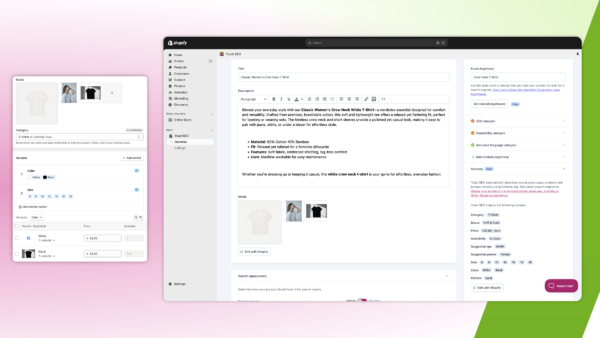Stand out in Google search results with product variant schema
Bring your Shopify products to life in Google searches. Highlight product variants that shoppers care about—color, size, pattern, material and audience demography—and watch your clicks and sales soar. Why you and your customers will love it Here’s how to try it: To access the Yoast SEO for Shopify product variant schema, you just need to: […]
Read: "Stand out in Google search results with product variant schema"


